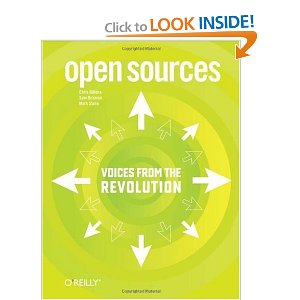How open source is like a good marriage


Zenoss' Open Source Management Report indicates 98% of enterprises now have open source. Satisfaction with the product is growing, although support and documentation continue to lag. Half of enterprises are using cloud resources.
The revolution is over. We won. (Picture from Amazon.Com.)
But we are talking about enterprises here. And we are talking about software licenses. I know that when things started there was a lot of fervor, but now it's boring.
There is a reason for that.
Open source is not a one-night stand. It's a marriage. And marriages can get boring -- day after day after day the same thing. Of course, as someone married for 32 years I would add that's a feature, it's not a bug. And every day is still open to surprise.
As with a good marriage, open source is just there. It's dependable. You don't have to obsess over it, although buying it presents like a new hard drive once in a while would be nice.
With open source you can focus on the job at hand. Versions change but you don't have to be using the latest-and-greatest to get value. You upgrade on your own schedule.
Software that's marketed, however, and proprietary, has to be sexy -- in a software way. It needs the big events, the speeches, the shows, in order to maintain the interest of the buyers, and the constant flow of dollars.
It was the need for attention that drove shows like Comdex in the last century, and the lack of such a need that makes events like LinuxCon so tame by comparison. Instead of talking feeds-and-speeds, people at LinuxCon talk issues -- as in Eben Moglen's talk yesterday.
That's the way it should be with software. Shows and speeches and commercials and all the hoop-dee-doo costs money. In the proprietary era we felt there was no choice but to pay.
But now, thanks to the open source revolution, we have a more comfortable, easy relationship with software. I think it's a better way to live.